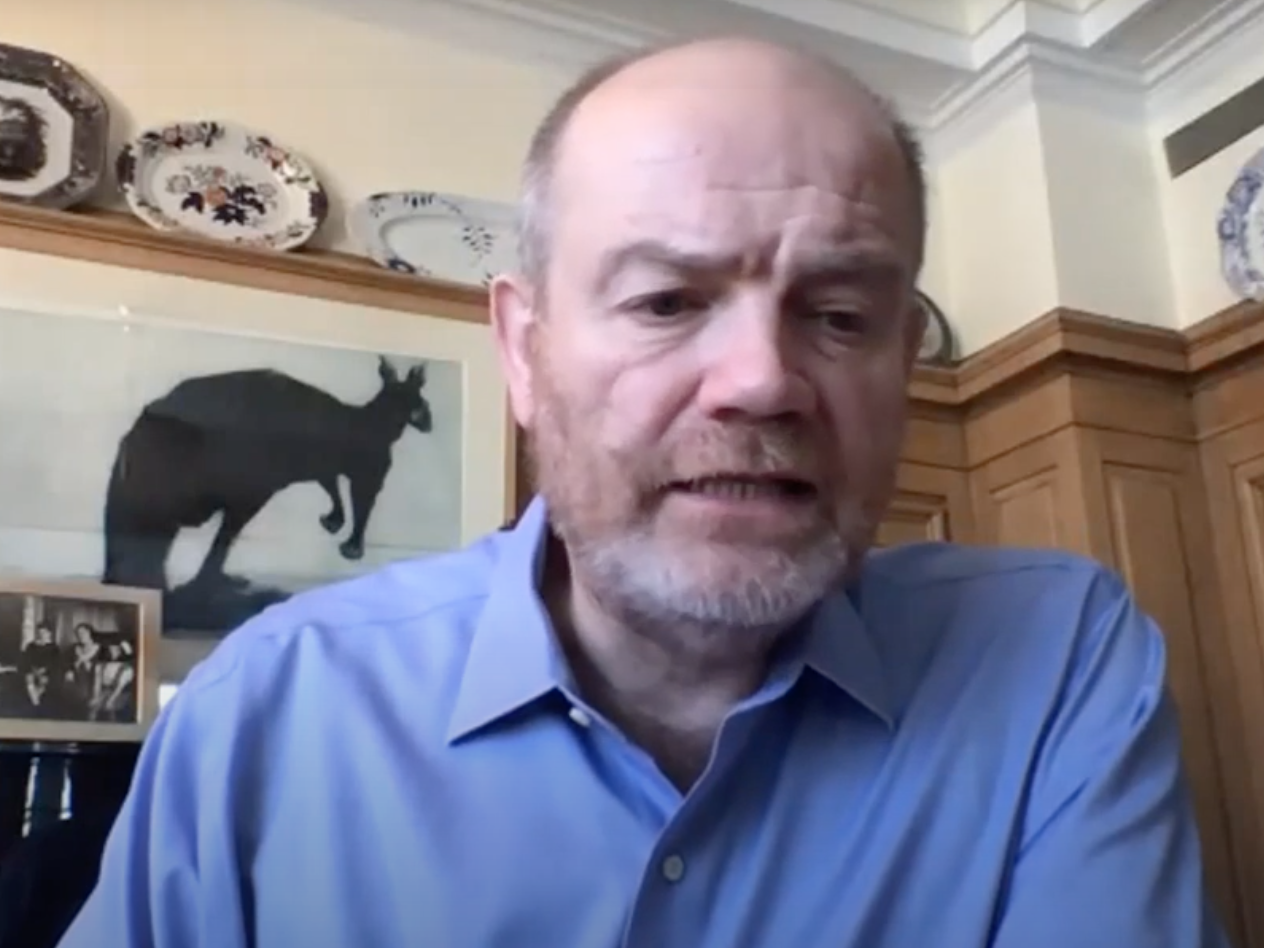
The former boss of the BBC believes the broadcaster’s “exceptionally good” Covid-19 coverage could secure its long-term future, which was seen to be at risk under Boris Johnson’s government.
Mark Thompson, who was director-general of the corporation between 2004 and 2012, compared the BBC’s service during the crisis with that of the NHS, adding that the debate over its future will now be “transformed”.
In an interview talking about how Covid-19 has affected the news industry, Thompson also told of how the New York Times – which he joined as chief executive after leaving the BBC – has so far remained “exempt” from the economic woes afflicting the industry. The title is still recruiting staff at a time when many others – on both sides of the Atlantic – have been forced to make cuts.
Mark Thompson interview: “One of the most important things that any news organisation has ever done”
In an interview with the International News Media Association (video below), Thompson – a Brit who originally trained as a journalist at the BBC – described “the task of helping the public make sense” of coronavirus as “one of the most important things that any news organisation has ever done”.
Despite the importance of the task – and many news websites across the world reporting record online readership – publishing companies have been hit hard by wider economic issues that have led to the collapse of the advertising market.
The New York Times, Thompson suggested, is “better placed to cope with this major crisis” than many of its peers. In part this is because more than two-thirds of its revenues come from subscriptions, meaning it is less dependant on advertising.
The NYT, he said, is also less reliant on newsstand sales than others because a large proportion of its papers are delivered to homes and businesses.
Thompson also spoke of how the Times – unlike many of its competitor news organisations – has so far been able to hold back from making cuts or putting employees on furlough. In fact, he said the NYT is still actively recruiting journalists and other staff.
Ad-reliant titles have “a very hard road through this”
The NYT reported last week how 28,000 staff across news companies in North America have so far been laid off due to Covid-19.
“We are exempt from that at the moment,” said Thompson. “Newspaper groups which are heavily dependant on advertising, and magazine groups as well, have got a very hard road through this.”
He added: “Some categories of advertising – an obvious example is travel and hotels, but it’s probably true of luxury goods as well – the advertisers are, quite understandably, at the moment are keeping their powder dry because the clients just aren’t there at the moment.
“It’s very difficult – fiendishly difficult – for example, for the magazine publishers. This is the time of year when they are planning their really big fall issues, the September issues of Vogue and the other fashion magazines and the rest of it. It’s really desperately difficult for those guys.
“We are in a slightly different category. And our plan has been to lean into our strategy. So we haven’t yet – there are not blanket guarantees here, and we need to manage the entire business – but we haven’t yet in fact laid off any staff or furloughed any staff.
“We’re continuing to hire for our newsroom. We’re continuing to hire for digital product and engineering and data science. So we’re continuing to execute our strategy, which is a growth strategy.”
BBC and others are “rising to the occasion” during Covid-19 pandemic
As well as praising the work of NYT journalists, Thompson said there were examples across the world of organisations “rising to the occasion” of covering Covid-19.
“In the UK, for example… both UK newspapers but also UK broadcasters [have risen to the occasion] – and the BBC in particular I think has been exceptionally good during the coronavirus.
“And indeed I think the whole, if you like, destiny of the BBC might be significantly changed for the better by this. It’s a terrible thing the coronavirus, but I think one of the surprising positive by-products might be that the debate about the future of the BBC is going to be transformed by it. The BBC’s service [is] in some respects analogous to the NHS, and I think the public have been reminded of that.”
During the 2019 general election campaign, Boris Johnson suggested he might consider scrapping the BBC’s licence fee funding model, raising concerns about the organisation’s future.
New York Times making coronavirus stories free for “our public mission”
Despite relying on its subscriber base for revenues, the New York Times has made a large amount of its coronavirus content free to access online.
Thompson said this had been done because “our public mission is more important to us than anything”. But he also expects the strategy to benefit the company in the long term.
“I do think of newspapers and news organisations as public services with a public mission,” he said. “In times of great need, your immediate responsibility is to make sure that people have got access to the news.
“For what it’s worth, I would also say giving new readers a chance to sample and understand the value of what you do in a time of great need is, in many ways in terms of marketing, it’s pure gold. It’s 24-carat gold…. You really helped someone when they really wanted to know what was going on. You were there for them.
“I think people remember that. I think these are defining moments for news organisations and news brands.”
Email pged@pressgazette.co.uk to point out mistakes, provide story tips or send in a letter for publication on our "Letters Page" blog
